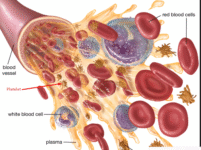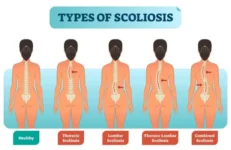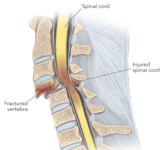

Your Trusted Guide in Health and Healing
Browse by Category
Arthritis, and Chronic Pain (A - Z)
Dairy and Food Suppliment (A - Z)
Difference Between
Dr. Md. Harun Ar Rashid
Drugs (A - Z)
Fitness
Health (A - Z)
Homeopathy Medicine (A -Z)
Life Style
Rx Anatomy (A - Z)
Rx Cancer (A - Z)
Rx Dermatology (A-Z)
Rx Endocrinology (A - Z)
Rx ENT (A - Z)
Rx Eye & Vision Care (A - Z)
Rx Foundation
Rx Fracture of Bone (A - Z)
Rx Gymnesium
Rx Injury and Surgery (A - Z)
Rx iT World
Rx iT World Hacking Tutorial
Rx Journal of Chronic Pain
Rx Lab Test (A - Z)
Rx Musculoskeletal System (A - Z)
Rx Neurology (A - Z)
Rx News24.com
Rx Nuts, Seeds, Grains and Cereals
Rx Physiotherapy (A - Z)
Rx Pregnancy, Baby & Mom Care
Rx Research
Rx Skin, Hair, and Beauty Care
Rx Speech and Language Therapy
Rx Trending Keyword
Rx Urology
Rx Vegetables, Herbs and Spices (A - Z)
Science
Weight Loss
A world free from illness is not a dream—it is the mission we arm ourselves for day by
“Every people in the world are a soldier and continue involving with a war against micro microorganisms, like virus, bacteria, fungus, and dust. To safe 8 billion of people, and remove the illness from the world, we choice a small weapon is knowledge, compassion, innovation, harnessed in laboratories, clinics, communities and an unrelenting campaign fueled by science, medical information, empathy, and unwavering commitment for our patient. This global war against illness is fought not with bombs or barricades, but with microscopes, stethoscopes, and the simple, yet profound, act of caring for our neighbor. Only through collaboration and shared resolve can we wrest victory from the root of contagion, find the cure, and secure a healthier tomorrow for every person on this planet. “Research is our reconnaissance, prevention our defense, and treatment our triumph in the battle against disease. Welcome every one in this battle field.
- Show all
- Featured
- Popular
- Choose category
- All categories
- Arthritis, and Chronic Pain (A - Z)
- Cardiovascular and Respiratory Disease (A - Z)
- Cryptocurrency, Bitcoin, and Behind Dark Web Technology
- Dairy and Food Suppliment (A - Z)
- Degenerative Bones, Joints, and Spine Care (A - Z)
- Difference Between
- Dr. Md. Harun Ar Rashid
- Drugs (A - Z)
- Fitness
- Gastrointestinal, Pelvic & Liver Disease, (A - Z)
- Health (A - Z)
- Homeopathy Medicine (A -Z)
- Kids School Education, Talent Creative Ideas, Game & Movie
- Life Style
- Organic, seasonal Fruits, and Vitamin (A - Z)
- PHP, JS, CSS, Python, and Machine Learning Technology
- Rx Affiliate Marketing & Freelancing (A - Z)
- Rx Anatomy (A - Z)
- Rx Autoimmune, Genetic and Rare Diseases (A - Z)
- Rx Blood Donation, Fundraising & Charitable Trust
- Rx Blood, Metabolism, and Hormonal Diseases (A - Z)
- Rx Cancer (A - Z)
- Rx Counseling, Parenting, Mental Wellness & Relationships
- Rx Cyber Crime and Cyber Terrorism Protection Tutorial
- Rx Data Science and Artificial Intelligence
- Rx Dermatology (A-Z)
- Rx Dietary Supplements, Juices & Beverages
- Rx Endocrinology (A - Z)
- Rx ENT (A - Z)
- Rx Entertainmenting, Traveling, Hostel Booking
- Rx Entrepreneurs, Leadership, Motivational Quotes, and Speech
- Rx Eye & Vision Care (A - Z)
- Rx Foundation
- Rx Fracture of Bone (A - Z)
- Rx Gymnesium
- Rx Harbal, Unani & Ayurvedic Medicine (A-Z)
- Rx Injury and Surgery (A - Z)
- Rx iT World
- Rx iT World Hacking Tutorial
- Rx Journal of Chronic Pain
- 1
- 2
- 3
- …
- 10309
- Next Page »
RxHarun Purpose and Vision
Editor Choice Article
You May Also Like
"We are always committed to being your expert source of everyday health guideline. Come to us to find out the trusted medical information and health advice to pursuit of health and wellness."

Meet Our Paid and Guest Writter










































Special Reviews From Our Honorable Physicians
More Than 2210 People Have Said How Good Are RxHarun
Practitioner
Enthusiast
Researcher
Pharmacologist
We Are Thrilled And Happy For Those Who Like and Share Our Website Information

































































































































